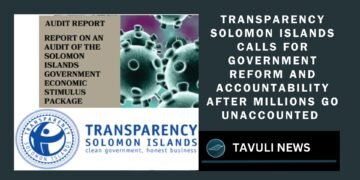Court Awards $75,000 in Damages for Defamatory Statements Published in Multiple Articles.
The High Court of the Solomon Islands has ruled in favor of Mr. Ganesh Chand, the former Vice-Chancellor of the Solomon Islands National University (SINU), in a defamation case against the Solomon Star newspaper. The decision, made in December 2023, stemmed from allegations published in several articles in 2020 accusing Mr. Chand of corrupt practices during his tenure as Vice-Chancellor.
Mr. Chand was appointed Vice-Chancellor of SINU in March 2019. However, his time in the role became marred by accusations and counter-accusations of misconduct in 2020. The allegations, published by Solomon Star, suggested that Mr. Chand favored relatives and close associates during the university’s recruitment processes. One article raised concerns about his influence over hiring decisions, implying the misuse of his position for personal benefit.
While the court found that not all claims were defamatory, it ruled that the corruption accusations were particularly damaging to Mr. Chand’s reputation and lacked sufficient evidence. The court further noted that the newspaper acted with malice in its reporting and had failed to issue a retraction or apology. As a result, Mr. Chand was awarded $50,000 in general damages and $25,000 in aggravated damages. The court also ordered the Solomon Star to cover legal costs.
Mr. Chand’s experience with legal disputes involving media outlets is not new. In 2006, he brought a defamation case against the Fiji Times following the publication of an article that suggested he was being investigated by the police in connection with the alleged theft of government property. Mr. Chand denied any knowledge of such an investigation until the article was published. The High Court of Fiji ruled in favor of the Fiji Times in 2007, a decision later upheld by the Fiji Court of Appeal.
In the Solomon Islands case, however, the Court ruled that the corruption allegations against Mr. Chand were not backed by sufficient evidence and that the reporting had gone beyond fair comment. The court further noted that the articles were disseminated widely, through both the Solomon Star’s print and digital platforms.











































































